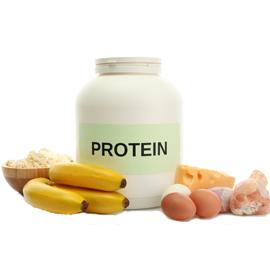
One of the most important nutrients you’ll need after weight loss surgery is protein. Without enough protein, your body’s ability to heal could be compromised, you could lose lean muscle mass, your immune system could become less efficient, and you could be more prone to post-surgery hair loss. Because you’ll be required to eat smaller meals after your procedure, getting enough Protein after Bariatric Surgery is critical.
In every meal, make sure you have at least one source of lean protein. Your daily goal should be 60 grams. Right after surgery, you’ll likely need to get these 60 grams from both food and supplements. Once you’re able to eat more later on, you may be able to get all of your protein from food. In any case, protein supplements contain calories, so always check labels.
High-Protein Foods
Foods that are high in protein include:
- Lean pork and beef
- Tuna
- Chicken and turkey
- Eggs and egg substitute
- Cottage cheese
- Low-fat cheese
- Fat-free milk and powdered milk
- Sugar-free yogurt
- Peanut butter
- Beans
- Tofu
- Sausage
- Bacon
- Assorted nuts (especially almonds and Brazil nuts)
Many of these foods, like nuts and pork products, can be high in fat and calories, so be sure to eat them in small quantities. Avoid foods that contain added sugar, as that will substantially drive up their calorie counts.
Protein after Bariatric Surgery: Supplements
Because 60 grams of protein can be hard to get during 3 to 5 one-ounce meals each day, there are many protein powders, pre-mixed shakes, and bars that can be used as protein supplements. When choosing protein supplements, make sure you choose those that pack a powerful protein punch with the fewest calories. Sources include:
- 100% whey protein
- EAS shakes and mixes
- Carb Solution shakes
- Advant-Edge shakes
- Optisource protein drinks
- Beneprotein powders
- ProComplex powder
A protein supplement that contains 20 grams of protein per serving should contain no more than 120 calories per serving. Many of the above powders can be mixed with the drink of your choice (just make sure it’s calorie-free or low-calorie). Avoid products like Ensure or Boost, as they’re designed for people who need added calories. Also, beware of prepared protein shakes at gyms and health clubs—they often have added sugar to improve their taste. Like with food, it’s always best to prepare your own whenever possible so that you know exactly what’s in each supplement or meal you consume.


